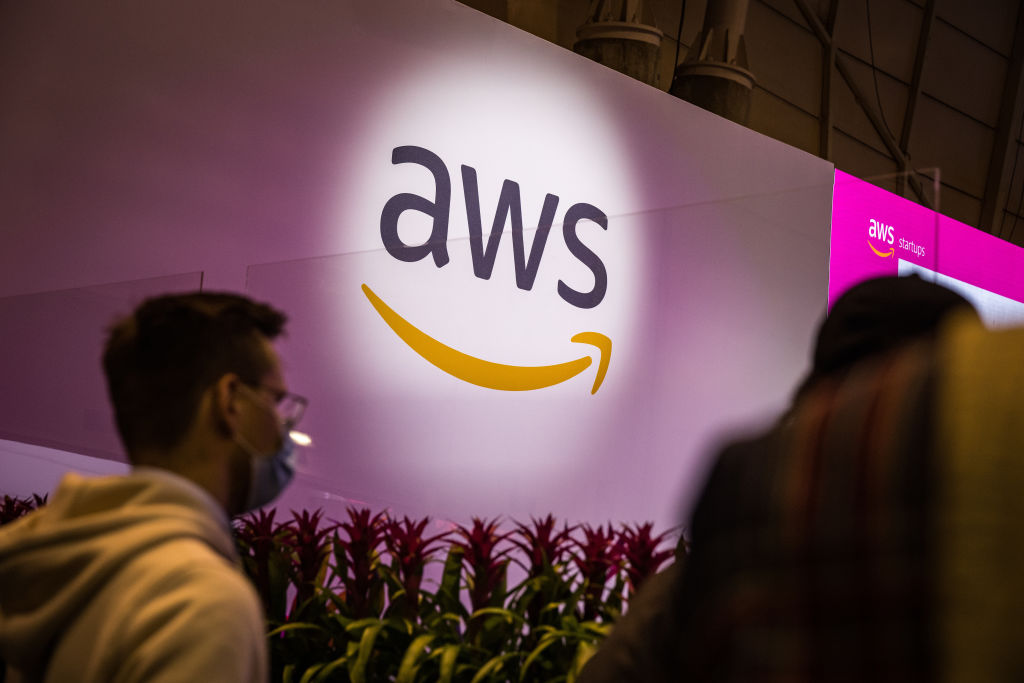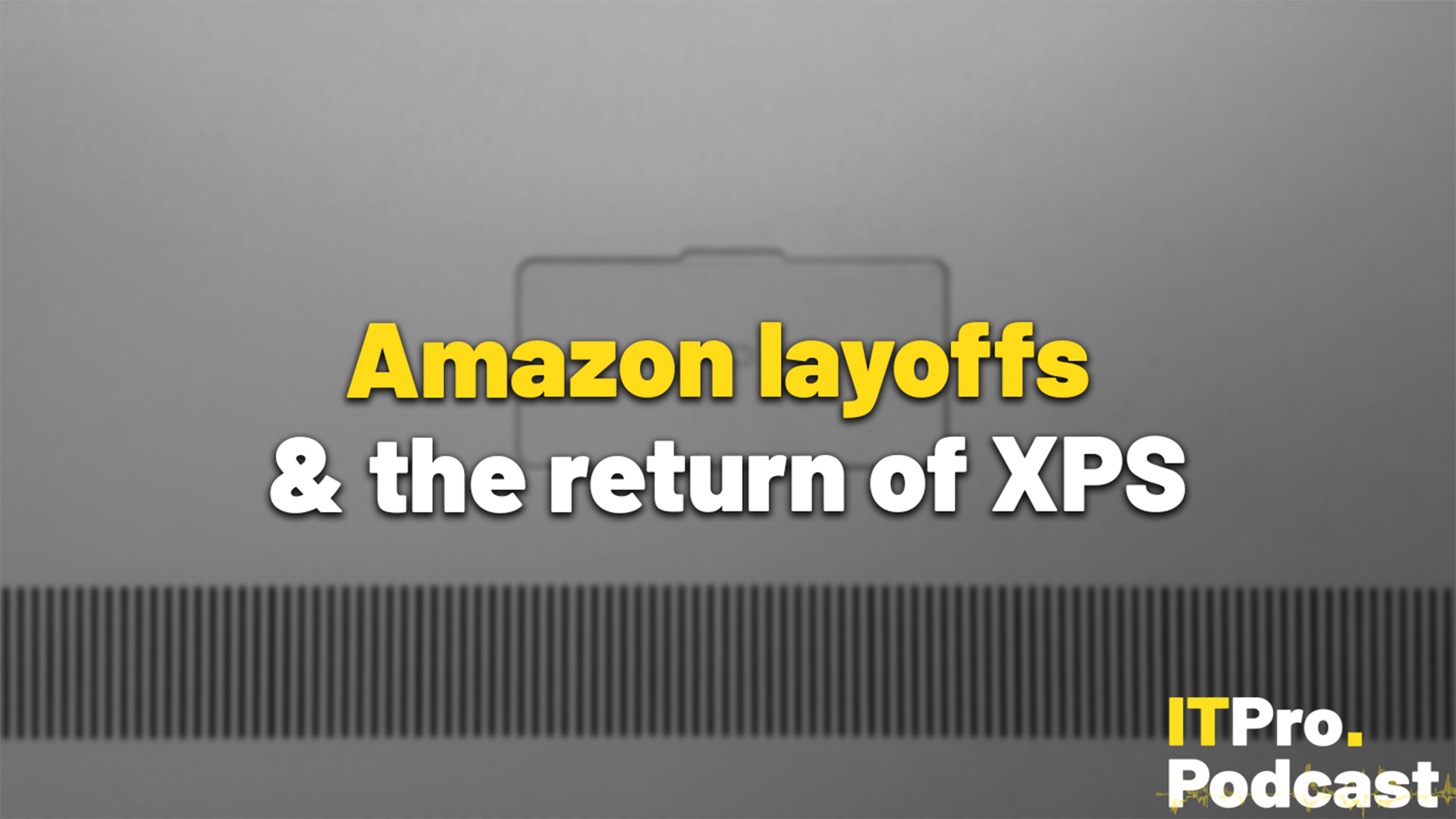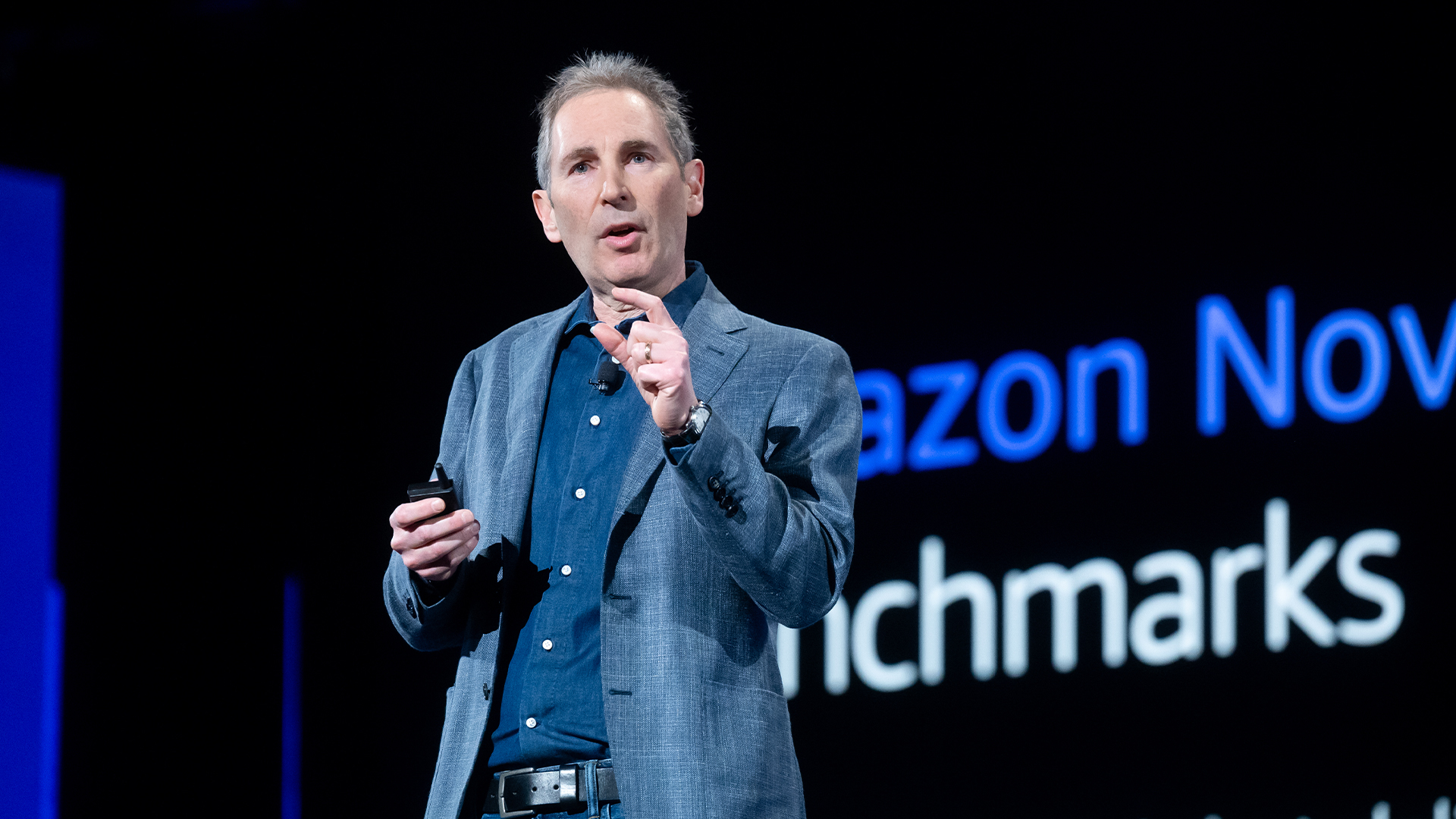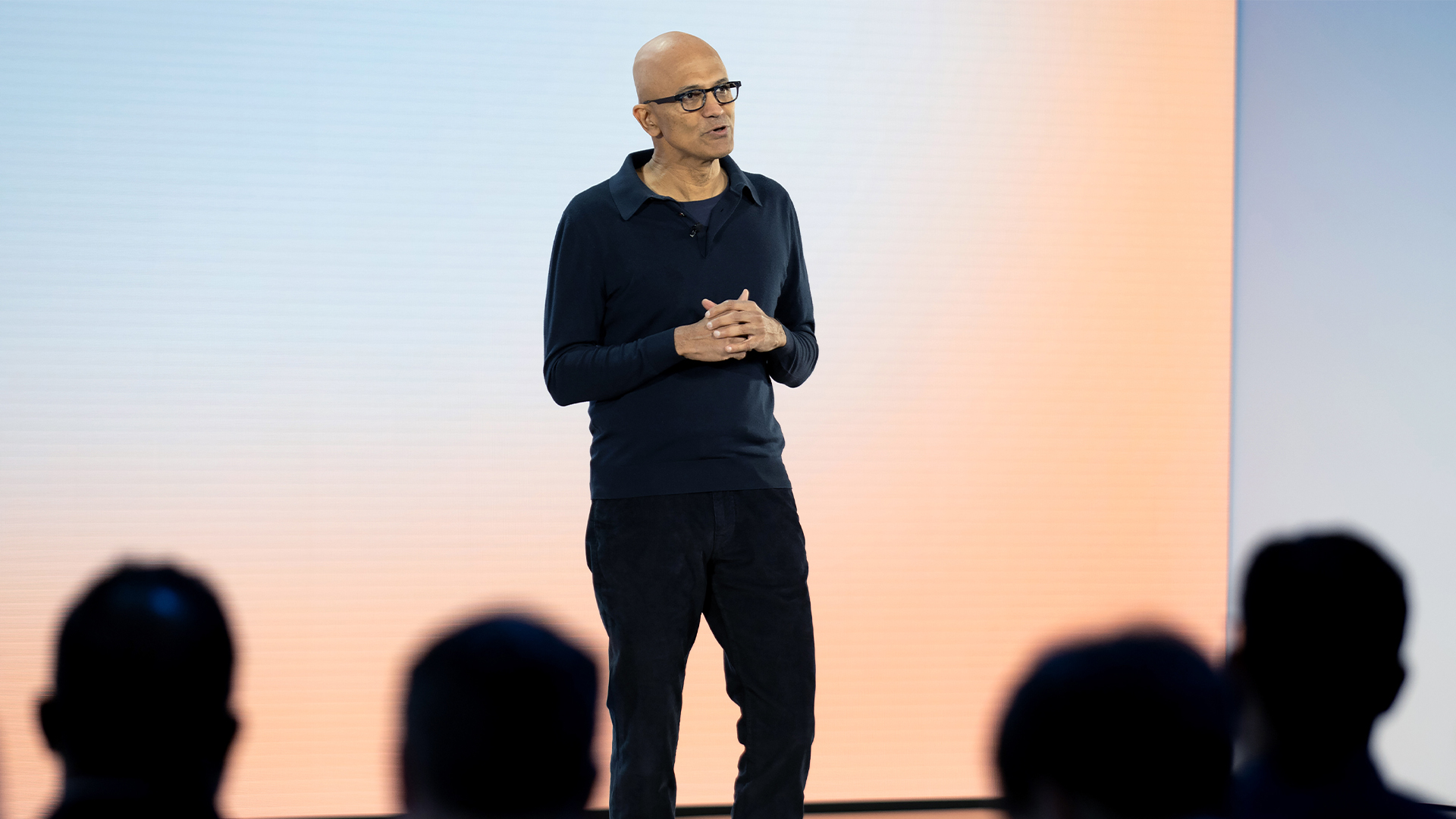AWS Lambda SnapStart update speeds up application cold starts
The updated service utilises cache memory to store quickly-restored snapshots of functions as needed, reducing latency and cost


Sign up today and you will receive a free copy of our Future Focus 2025 report - the leading guidance on AI, cybersecurity and other IT challenges as per 700+ senior executives
You are now subscribed
Your newsletter sign-up was successful
Amazon Web Services (AWS) has announced Lambda SnapStart, an update to the Lambda serverless compute service that greatly reduces application start latency.
SnapStart aims to speed up the cold start times of applications through the use of snapshots which can run multiple execution environments.
RELATED RESOURCE

IBM FlashSystem 5000 and 5200 for mid-market enterprises
Manage rapid data growth within limited IT budgets
Once enabled within a Lambda function, Lambda SnapStart will begin its optimisation, storing an encrypted snapshot of the memory and disk state in the cache to be called upon at a later time. Snapshots that have not been called for 14 days are removed from the cache memory.
AWS Lambda runs functions within a secure execution environment that cycle through an initialisation (Init), invocation (Invoke), and shutdown phase. Running through these every time code is called upon can be slow and lead to increased costs.
With Lambda SnapStart, each snapshot can be retrieved and invoked without the need for the Init phase, and populates the execution environment in chunks as required. This results in far faster load and execution times, and AWS claims Lambda SnapStart can enable Java functions to start up ten times faster.
“Initialising the runtime for some languages can be expensive,” said Jeff Barr, chief evangelist at AWS, in a blog post.
“For example, the Init phase for a Lambda function that uses one of the Java runtimes in conjunction with a framework such as Spring Boot, Quarkus, or Micronaut can sometimes take as long as ten seconds - this includes dependency injection, compilation of the code for the function, and classpath component scanning.”
Sign up today and you will receive a free copy of our Future Focus 2025 report - the leading guidance on AI, cybersecurity and other IT challenges as per 700+ senior executives
In the same post, Barr gave an example of the service in action, in which he reduced the initialisation of an example function from just over 6 seconds to under 200 milliseconds. This is possible through the restoration of the snapshot saved in the cache, and the subsequent invocation of the function handler.
For all its benefits, the introduction of Lambda SnapStart does necessitate any changes to existing developer practice. Code that has relied on generating content during the Init phase might require alteration, like pseudo random number generators, for example, as the restoration phase does not provide the unique conditions of initialisation.
With this in mind, AWS has updated functions such as OpenSSL’s RAND_BYTES function so that it works in a SnapStart environment, as well as similar functions within Java and Amazon’s Linux.
Similarly, AWS has warned developers to check over code that downloads reference data during the Init phase, as this can be made stale through SnapStart’s caching.
AWS Lambda is the firm’s serverless computing service, which allows companies to run code without the need to provision or manage servers in-house. Developers can use it to run apps and focus entirely on their maintenance, without the additional burden of servers or hardware.
The announcement was made at the firm’s annual conference AWS re:Invent, held in Las Vegas. SnapStart is available now for Lambda customers at no extra cost, in the Asia Pacific, Europe, US East, and US West regions.

Rory Bathgate is Features and Multimedia Editor at ITPro, overseeing all in-depth content and case studies. He can also be found co-hosting the ITPro Podcast with Jane McCallion, swapping a keyboard for a microphone to discuss the latest learnings with thought leaders from across the tech sector.
In his free time, Rory enjoys photography, video editing, and good science fiction. After graduating from the University of Kent with a BA in English and American Literature, Rory undertook an MA in Eighteenth-Century Studies at King’s College London. He joined ITPro in 2022 as a graduate, following four years in student journalism. You can contact Rory at rory.bathgate@futurenet.com or on LinkedIn.
-
 Cyber experts issue warning over new phishing kit that proxies real login pages
Cyber experts issue warning over new phishing kit that proxies real login pagesNews The Starkiller package offers monthly framework updates and documentation, meaning no technical ability is needed
-
 Microsoft hails advances in glass data storage
Microsoft hails advances in glass data storageNews Project Silica uses lasers to encode data into borosilicate glass, where it stays stable for thousands of years
-
 January rundown: Amazon layoffs and the return of XPS
January rundown: Amazon layoffs and the return of XPSITPro Podcast This year's tech layoffs have just begun, as Amazon sheds 16,000 workers in one go
-
 Global IT spending set to hit a 30-year high by end of 2025
Global IT spending set to hit a 30-year high by end of 2025News Spending on hardware, software and IT services is growing faster than it has since 1996
-
 Amazon is cutting 14,000 roles in a bid to ‘operate like the world's largest startup’
Amazon is cutting 14,000 roles in a bid to ‘operate like the world's largest startup’News The layoffs at Amazon mark the latest in a string of cuts in recent years
-
 AI tools are a game changer for enterprise productivity, but reliability issues are causing major headaches – ‘everyone’s using AI, but very few know how to keep it from falling over’
AI tools are a game changer for enterprise productivity, but reliability issues are causing major headaches – ‘everyone’s using AI, but very few know how to keep it from falling over’News Enterprises are flocking to AI tools, but very few lack the appropriate infrastructure to drive adoption at scale
-
 Pegasystems teams up with AWS to supercharge IT modernization
Pegasystems teams up with AWS to supercharge IT modernizationNews The duo aim to create deeper ties between the Blueprint, Bedrock, and Transform services
-
 ‘Lean into it’: Amazon CEO Andy Jassy thinks enterprises need to embrace AI to avoid being left behind – even if that means fewer jobs in the future
‘Lean into it’: Amazon CEO Andy Jassy thinks enterprises need to embrace AI to avoid being left behind – even if that means fewer jobs in the futureNews Amazon CEO Andy Jassy thinks companies need to "lean into" AI and embrace the technology despite concerns over job losses.
-
 Microsoft workers face a fresh round of layoffs – here’s who could be impacted
Microsoft workers face a fresh round of layoffs – here’s who could be impactedNews Microsoft will cut 6% of its workforce, equivalent to around 6,000 workers, as part of its latest cost-cutting drive.
-
 ‘If you want to look like a flesh-bound chatbot, then by all means use an AI teleprompter’: Amazon banned candidates from using AI tools during interviews – here’s why you should never use them to secure a job
‘If you want to look like a flesh-bound chatbot, then by all means use an AI teleprompter’: Amazon banned candidates from using AI tools during interviews – here’s why you should never use them to secure a jobNews Amazon has banned the use of AI tools during the interview process – and it’s not the only major firm cracking down on the trend.